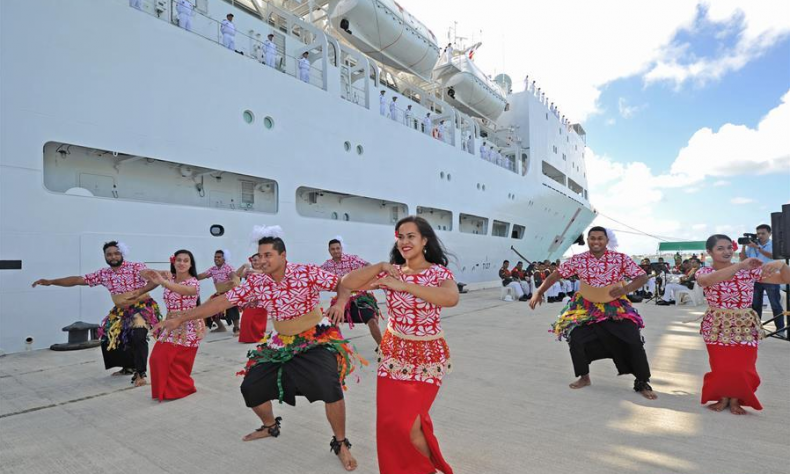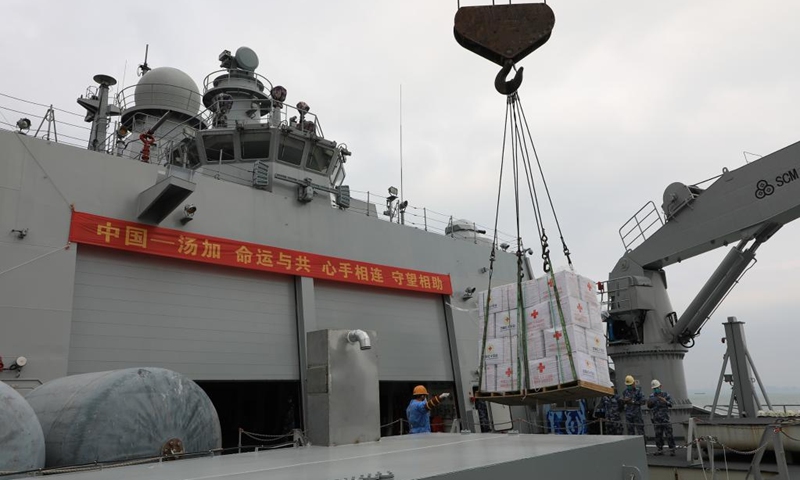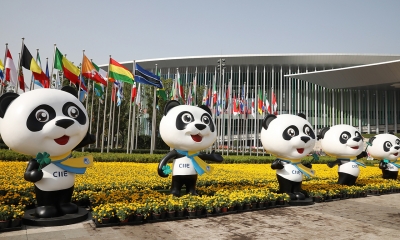A New Dawn for Economic Development and Prosperity in South Pacific

Tonga’s partnership with China, which is within the BRI cooperation framework, demonstrates China’s positive influence in the Pacific region.
From its inception in late 2013, the Belt and Road Initiative (BRI) has yielded several tangible outcomes that may have long-lasting effects on the social and economic development of host nations and the geopolitical dynamics of the world. The BRI has been playing a significant role in the development of Pacific nations by providing infrastructure, investment, and trade opportunities.
China’s active involvement in the socioeconomic development of South Pacific Island countries has been a topic of discussion in recent time. China has been extending its financial aid to various countries under the BRI investments. Tonga, one of the small developing island states, has become a focal point of China’s outreach to the South Pacific region.
Tonga is a small state with a population of around 100,000 people. It faces many development challenges, including limited resources and vulnerability to natural disasters. The country relies heavily on external aid from partners to support its development.
Since its establishment of diplomatic relations with Tonga in 1998, China has been a consistent provider of economic aid and technical assistance to Tonga. China has been one of Tonga’s major development partners, helping in areas such as infrastructure, education, and health care. China has included the construction of major infrastructure projects such as the Nuku’alofa Central Business District, the construction of a new government office complex, the Tonga High School Sports Complex, and the Tonga-China Friendship Center.
From 2020 to 2021, China aided around 100 projects through the Chinese embassy for the Tongan people, which covered agriculture, fishery, education, health, environment protection and climate change, etc. The Chinese embassy also provided 1000 water tanks to the rural households for climate change adaptation and clean water supply in 2021.
China has also provided training and scholarships to Tongan students and professionals, enabling them to gain skills and knowledge that will help them contribute to their country’s development.

In addition to investments, China has provided other forms of aid, including medical equipment and supplies. China’s medical aid has also helped Tonga improve its healthcare system and responding to public health challenges. In response to the COVID-19 pandemic, China donated 2,000 PCR test kits to Tonga in 2020, providing much-needed support to the country’s healthcare system.
Moreover, China has played an important role in providing aid and assistance during natural disaster relief, such as Cyclone Gita which lashed Tonga in 2018. China provided relief packages and 500 prefab homes for the people affected by the tsunami in 2022.
The Chinese businesses in Tonga, including Chinese-run supermarkets and restaurants in Nuku’alofa, have benefited both countries. These businesses have given locals with both employment opportunities and access to affordable goods. In recent years, with Chinese tourists visiting the country, Tonga’s tourism industry, a key contributor to the economy, has developed a lot.
China’s aid and investment initiatives in Tonga have been lauded by the Tongan government, which has praised the projects for their potential to stimulate economic development and provide infrastructural improvements. With careful management and strategic planning, China’s aid and investment could provide a significant boost to Tonga’s development, helping the country achieve sustainable growth and progress.
Although the Western media has presented a negative narrative regarding China and its BRI investments in the Pacific region, China’s cooperation with Tonga and other Pacific island countries has revealed a different story. The majority of developing countries view the BRI as China’s international cooperation strategy to enhance global connectivity, communication, and cooperation to foster a more balanced and equitable world system with a shared future.
China has demonstrated that it is willing to establish mutually beneficial partnerships that respect the sovereignty and independence of other partners. China has signed BRI cooperation MOUs with 10 Pacific Island countries. According to statistics, from 1992 to 2021, total trade volume between China and these countries grew from $153 million to $5.3 billion, expanding by over 30 times in past 30 years. By the end of 2021, China’s direct investment in these countries reached $2.72 billion. China’s aid and investment in the Pacific region have helped create jobs and boost economic growth, and its support for regional organizations such as the Pacific Islands Forum has contributed to regional stability.
Just as Chinese President Xi Jinping has said, no matter how the international landscape may evolve, China will always be a good friend that shares the same ideal and follows the same path, a good brother going through thick and thin as well as a good partner forging ahead side by side of the Pacific Island countries.
Tonga’s partnership with China, which is within the BRI cooperation framework, demonstrates China’s positive influence in the Pacific region. As Tonga and other Pacific Island countries continue to face development challenges, China’s aid and investment under the BRI will remain an important source of support.
The article reflects the author’s opinions, and not necessarily the views of China Focus.
 Facebook
Facebook
 Twitter
Twitter
 Linkedin
Linkedin
 Google +
Google +





